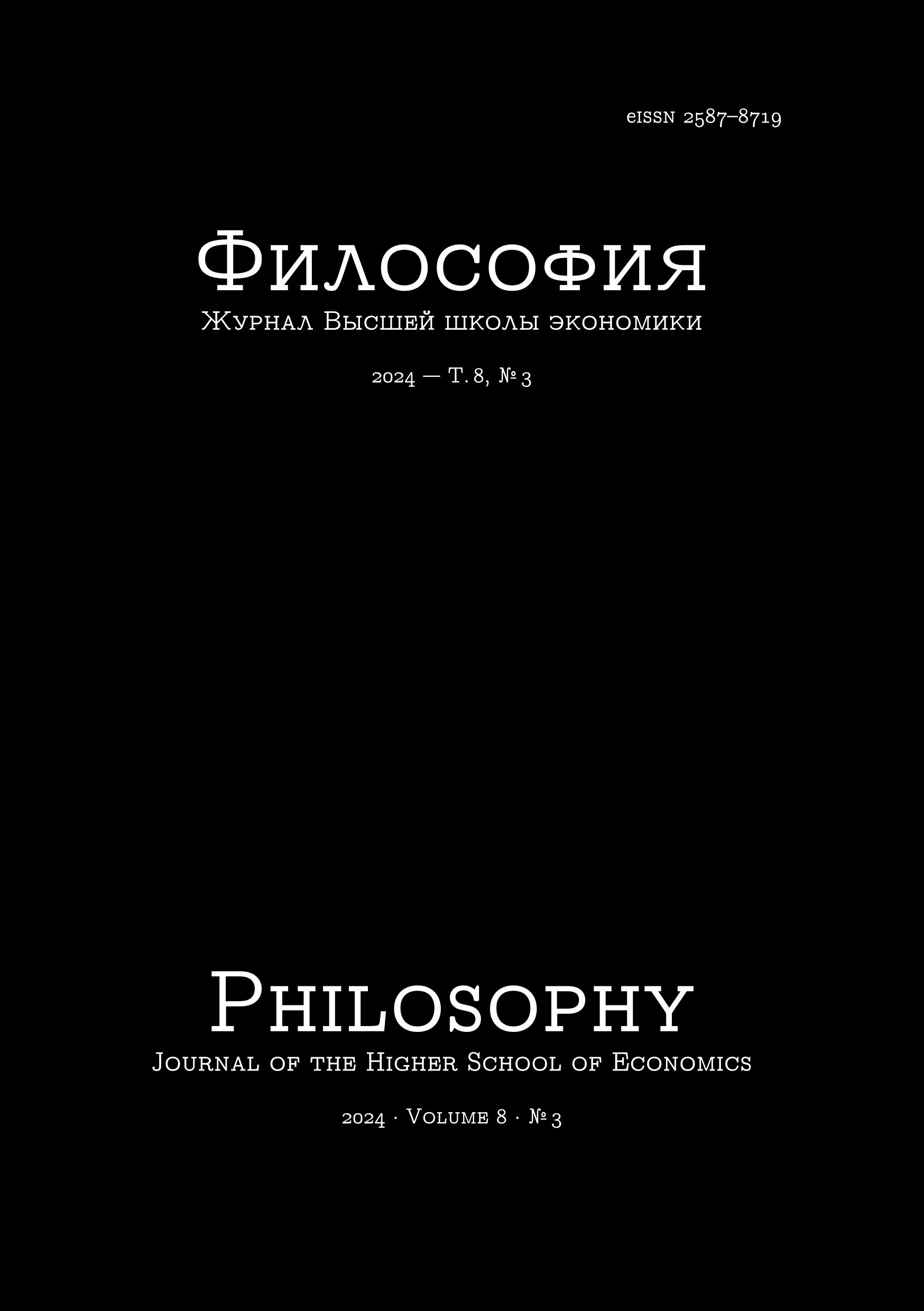Philosophy. Journal of the HSE. Vol. 8 No 3
Abstract
We present the third issue of our journal for the current year. It contains studies that mainly address historical and philosophical topics as well as socio-political philosophy. The articles included in the publication range from classical antiquity to the present day in chronology and from Hellas to the Turkic steppes in geography.
The issue opens with an article by Nikola Lechich, dedicated to the ancient visual philosopheme of order embracing disorder. The author focuses on the worldview of the early Pythagoreans and Platonists, on the concept of the dodecahedron as a figure capable of embracing the whole in particular. Paired with the latter work is a study by Olga Alieva, who considers the possibility of using the stylometric method to determine the authorship of dialogues in the Platonic corpus. The transition from ancient to medieval themes is presented by Oleg Aurov's article, which examines the existence of the concept of palatium in late Roman and early medieval Spanish texts, and continues with a study focusing on the role of the cult of the Virgin Mary in the Kingdom of Castile during the reign of Alfonso X the Wise, written in English by Juan Sota.
Konstantin Erusalimskii analyzes the ethical and political views of Prince Andrei Kurbskii in his study, proposing to consider them first and foremost as a linguistic problem. Of considerable interest in this article is the analysis of Kurbskii's attempts to bring Orthodox education closer to Catholic scholarship and the ethical and political ideals of the ancient world. Gaziz Telebaev and his two co-authors, Altaybaeva Ayaulym and Bexeit Asylzat, draw readers’ attention to the use of political concepts in the classical Turkic worldview, using a corpus of texts from the 8th-13th centuries for analysis.
The block of studies continues with two pairs of articles, each of which is of substantial interest to readers. Thus, Ilya Pavlov's investigation turns to an analysis of the methodology of the Cambridge School researchers and suggests supplementing it with several tools developed by other authors, ranging from Michel Foucault to Hermann Lubbe and Evert van der Zweerde. Larisa Zhgileva's article is a detailed analytical review of the utopian discourse in French social and philosophical literature of the twenties of our century. The articles by Daria Shakhova and Mikhail Voloshin are devoted, respectively, to the problems of phenomenology in the research of Vladimir Bibikhin and the epistemology of computer simulations.
Yevgeniy Maslanov's article opens a fascinating discussion on the problem of the political subjectivity of modern science. Vladimir Porus, Valentin Bazhanov, Liana Tukhvatulina, Svetlana Shibarshina and Yevgeniy Zharkov participated in the debate. The block of reviews and literary overviews in this issue includes Oleg Aurov's reflections on Pavel Lukin's book and Syumbel Zainullina's review of Matthieu Queloz's book. The issue ends with a review of the Fifth Bibikhin Readings, compiled by Daniil Vishniakov and Nikolai Sloboda.
Downloads

Copyright (c) 2024 Philosophy Journal of the Higher School of Economics

This work is licensed under a Creative Commons Attribution-NonCommercial 4.0 International License.





